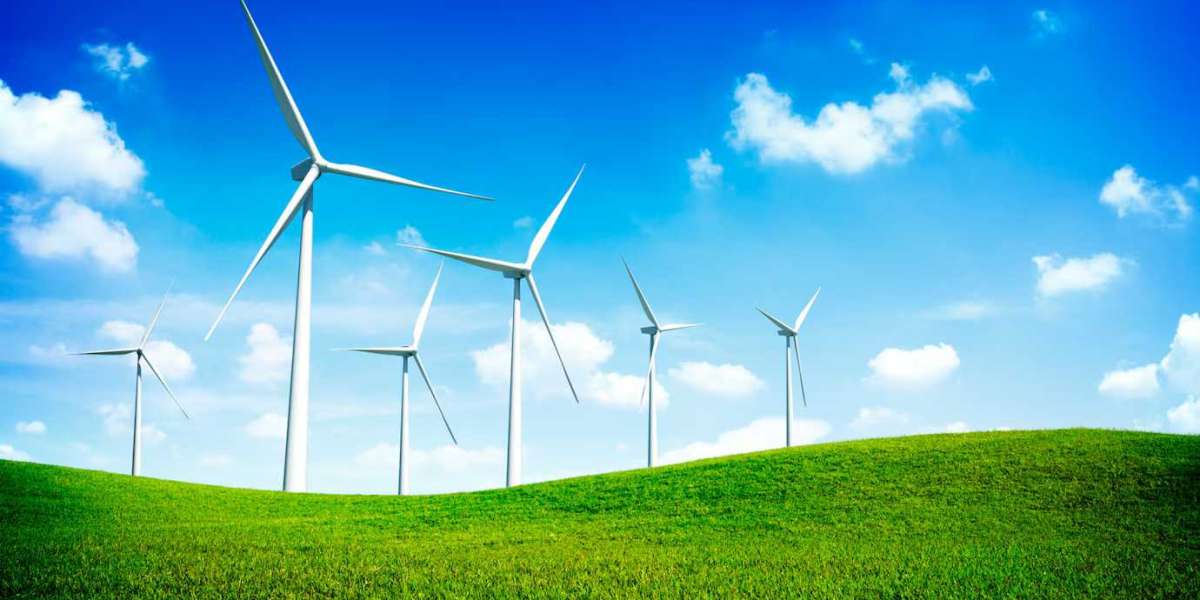What’s the driving factor behind flooding of islands, global warming, disrupted food supply and loss of species? Emission of greenhouse gases into the air are the major contributors to climate change. Power generation through the burning of fossil fuels like coal, oil or natural gas releases such hazardous gases into the atmosphere. To reduce carbon footprint and mitigate climate change, the world is transitioning towards a sustainable future by making use of renewable energy to generate power.
Natural energy sources available in imperishable magnitude including wind power, solar energy, hydropower, thermal energy and biomass energy are largely used for energy production.
2022 was the UK’s highest year which recorded the maximum power generation via renewable energy sources. Power generation through renewable resources saw a significant surge from 2% in 1991 to 14.6% in 2013. The figure gradually boosted with each passing year, reaching an 87.6% zero-carbon record in 2023, indicating the era of green energy.

A Step Towards Green Future
The UK has pledged to complete a shift to zero-carbon emissions and reliance on green energy for power generation, significantly combating climate change. To contribute to sustainability goals, businesses are looking for best energy suppliers who are compliant with energy regulations and offer solutions that are energy-efficient.
As renewable energy sources derive power from never-ending natural resources, they emerge as a beacon of transformation and hedge against energy price volatility. There are numerous benefits of using renewable energy resources, potentially helping to mitigate climate change and offer some economic benefits as well. This blog sheds light into the essential aspects on how green energy is powering a sustainable future.
Reduced Carbon Emissions
Burning of fossil fuels for electricity generation releases greenhouse gases into air, which significantly pollutes the environment and actively contributes to global warming. Major greenhouse gases including carbon dioxide, methane and nitrous oxide trap the heat present in the atmosphere and alter the climate, spreading respiratory diseases. Other negative aspects of greenhouse gas emissions include wildfires, heavy floods, extreme weather conditions and disrupted food supply, pushing the need to cut down such emissions. The use of green resources reduces the carbon emissions and promises a sustainable future. Electricity providers in the UK are investing in renewable energy infrastructure, to play a bigger role in sustainability and cut off energy expenses.
No Dependence on Fossil Fuels
Burning of fossil fuels particularly coal, oil or natural gases to generate power is badly impacting the atmosphere, emitting greenhouse gases into air and potentially impacting the air quality. To mitigate this climate change and safeguard the ecosystem from hazardous emissions, utility providers in the UK are taking effective initiatives to reduce consumption of fossil fuels and moving towards green energy. The use of green resources reduces the cost of power generation, making it effortless for energy suppliers to offer market competitive energy quotes. Green energy offers unlimited power supply and mitigates potential climate change.
More Economic Jobs Opportunities
The nations that depend upon fossil fuels are largely affected by the inconsistent global prices and geopolitical tensions, suffering with disrupted supply chains. Relying on renewable energy resources allows energy providers to offer cheapest electric supply and reduces the external shocks furnished by fossil-fuel-powered energy. Reliance on green energy empowers the nations to foster innovation, stimulate economic growth, and create millions of jobs. Workforce from diverse fields like engineering, marketing, manufacturing and management could be hired to derive power from green fuels, significantly supporting local economies.
Energy Security Stability
It’s been observed that the nations relying on fossil fuels for the power generation experience soaring energy prices and power disruption, affecting the overall efficiency and disrupting the food chain. Dependence on green resources offers outstanding benefits, offering energy security and price security. As the natural resources produce electricity or gas at economical prices, lowering energy crisis and external shocks.
Improved Public Health
Burning of fossil fuels releases greenhouse gases into the environment severely impacts human health, spreading respiratory and cardiovascular diseases, even leads to death. Owing to the carcinogenic nature, they are also known to affect the immune system as well as the central nervous systems. To mitigate drastic climate change and improve human health, the best energy suppliers in the UK have shifted towards green energy, saving the planet from harmful pollutants. Utilising natural resources for energy production cuts off the emission of harmful substances into the atmosphere, making the air clean and healthier populations.
Build Climate Resilience
As burning of fossil fuels releases hazardous pollutants into the atmosphere, badly impacting the planet’s climate and prompting environmental degradation, using green energy is the need of the hour. Utilisation of renewable energy resources is a key to decentralised and resilient climate. The adoption of green solutions allows the quick recovery in the event of natural disaster, fighting against extreme weather conditions and boosting climate resilience.
Sustainable Urban Development
The deployment of green energy solutions help electricity providers to build sustainable cities, leading to optimised use of energy. Using sustainable energy, cities can significantly minimise the emission of greenhouse gases into the atmosphere, saving the planet and making air breathable. Power generation through natural resources effectively meets the gas and electricity demand and offers never ending cheapest electricity supply. Furthermore, the infrastructure of buildings is integrated with advanced and energy-efficient technology, promising a flourishing and green future.
Integration of Advanced Technology
The phenomenal transformation towards sustainability is bolstering the integration of advanced technological solutions such as smart metres, energy-efficient gadgets, battery energy storage systems and smart grid technologies. The goal of sustainability is to save the planet and slash energy expenses. This technological development is making the energy distribution easier and allows consumers to optimise their energy use leading to lower utility bills.
Concluding Thoughts
The umbrella of sustainability is not just confirmed to green energy but it also prompts boosted economic growth, increased job opportunities, healthy environment and technological integration. Building a sustainable future is not a statutory responsibility, rather everyone must play their role by embracing green energy solutions to collectively save the planet and make it worth living.







